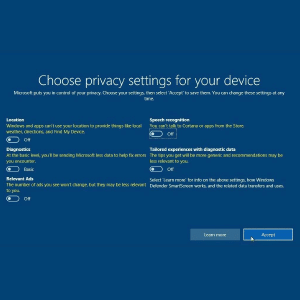Every time you visit a website, fill online forms and even send an email to someone, you leave a trail of data that can be used to identify you. Literally, every time we visit the internet, we leave a lot of data behind. This trail of data is referred to as digital footprints. This data can be narrowed down to personally identifiable information (PII) that can be used to dox an individual and even worse be used to commit fraud through identity theft attacks.
There are two major ways in which we create our digital footprints. Active and passive. Active digital footprints include what we submit online through social media posts, filling online forms and sending emails. Passive digital footprints involve the trail of data that we leave online unintentionally. This data includes our IP addresses and browsing history. Every time we visit the internet, our IP addresses are known to the entire internet. This means everyone has a digital footprint and the bigger the data, the more significant the risk. To minimize the chances of leaving a huge chunk of data online, here are some ways to hide and even minimize your digital footprint.
 Change your privacy settings on social media
Change your privacy settings on social media
Almost everybody has a social media account or a forum account. Social media makes a larger percentage of what we leave online. Furthermore, an expert or criminal can connect the dots to find what you like, where you live, what your friends like and lots of PII. By default, social media tends to give out a lot of information due to the privacy settings involved. Changing these default settings to be privacy-oriented can reduce the amount of data is visible to prying eyes.
Be keen on what you share
You might have heard the phrase, “the internet never forgets.” This is true, and it’s the reason why you should be more careful about the information you post online. Once you post something, you can never get rid of it entirely. Even deleting won’t help because internet caches will still retain the information. To minimize your digital footprints, share very little details about you on social media and other platforms. This will also reduce the risk of identity fraud and even third parties from getting their hands on your data.
 Use a VPN or an anonymizer
Use a VPN or an anonymizer
A VPN helps you minimize and even hide your digital footprints by providing security and privacy. A VPN offers security by encrypting your internet traffic. Encryption protects your activities from prying eyes and even from your ISP. Also, even if your VPN traffic is intercepted, your data won’t be helpful unless they have the decryption keys.
Through privacy, a VPN helps you hide your online activities and hence nobody will know what you are doing online. By assigning you a new IP address, anyone who is tracking will end up at the VPN’s doorstep. Additionally, most VPNs use shared IP address, and this makes it harder to trace an individual via a VPN IP address. This amount of privacy also depends on the VPN you choose. The ones with a zero-log policy are the best.
Other VPNs also come with features that make sure you are anonymous, and your security will never be compromised.
Bottomline
Taking care of your digital privacy and security will help minimize and mask your digital footprints.
 Change your privacy settings on social media
Change your privacy settings on social media Use a VPN or an anonymizer
Use a VPN or an anonymizer

